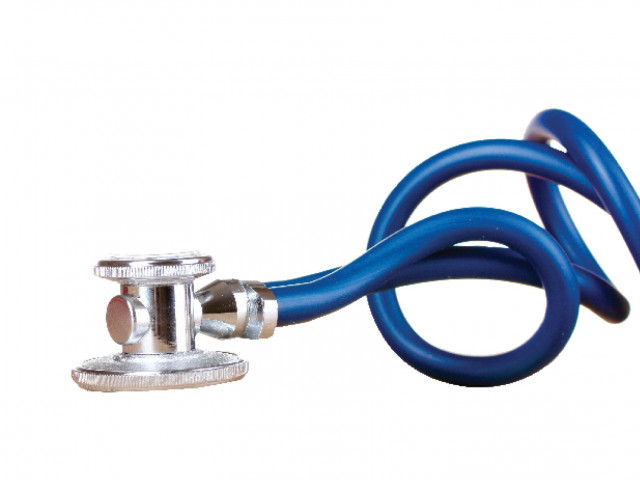Working long hours in the hospital, postgraduates complain of minimal pay
New doctors face a number of issues, including politicised appointments and lack of security at hospitals.

Working long hours in the hospital, postgraduates complain of minimal pay
The title ‘doctor’ may guarantee instant respect in most circles, but the long years of medical school and exams don’t translate into instant riches.
When doctors complain that their academic life is extremely tough, they do not just mean the six years of their medical degree. Doctors who go on to do a postgraduate degree face a number of issues in both the private and the public sector hospitals before they become qualified consultants.
The College of Physicians and Surgeons (CPSP) has designed a course of post graduation, the Fellowship of the College of Physicians and Surgeons (FCPS) degree, which is granted after clearing two examinations with a mandatory four to five-year clinical experience between these.
The CPSP is offering fellowship training in 64 specialties at about 18 accredited public and semi-government hospitals in the city. There are about 39 accredited private hospitals for training postgraduates.
But the lives of doctors in public and private hospitals differ vastly. All hospitals in the public sector are bound by the Sindh government to pay Rs42,500 to each trainee monthly.
In the private sector, however, there is no organisation to regulate and decide the terms of appointment and training of postgraduates - which is why every hospital has its own pay scale. Some private hospitals did not pay postgraduates at all but revised their policies after the CPSP directed that all accredited private institutions will have to give a stipend to trainees. But that is as far as the CPSP can go, as it only deals with its students and has no authority over public and private sector training hospitals.
Doctors working in privately-run hospitals complain that they are paid far less than government-run hospitals.
Liaquat National Hospital pays Rs30,000 to post graduates in the first year and increases this by Rs2,000 every year, said Dr Khurram, who works at the orthopedics department. The Jinnah Medical and Dental Hospital also pays trainees Rs30,000 per month and postgraduates at the National Institute of Blood Diseases offers Rs 26,000.
But even with higher pay, postgraduates face a number of other issues. There are a slew of problems - politicised appointments, intense workloads and the lack of security at hospitals. The increased stipends aren’t all they are made out to be - there have been payment delays at three tertiary care hospitals.
Hospitals have to pay for the postgraduates’ stipends from their own budget allocated by the Sindh health department. At the Abbasi Shaheed Hospital, residents only received their stipend for November 2011 this April while the stipend for June 2012 was paid early October. Salaries at the Civil and Jinnah hospitals are also delayed.
Budget blues
The hospitals’ management blames this on delays in the release of the budget funds by the Sindh government. Dr Nadeem Rajput, the medical superintendent of Abbasi Shaheed Hospital, said that they face delays when the Karachi Metropolitan Corporation delays payments.
The Dow University of Health Sciences has to pay Civil hospital’s postgraduates. But Prof. Masood Hameed Khan, the university’s vice chancellor, says they are struggling because their budget has been cut half to Rs350 million, while Rs200 million was spent only on postgraduates.
Prof. Tasnim Ahsan, the executive director of Jinnah hospital, said that the missing stipends are due to the increase in salaries but the hospital did not receive an additional amount for the pay raises. She said that the Sindh government has now, however, matched the budget allocation to the raise in salaries and they are not facing any delays.
Published in The Express Tribune, November 11th, 2012.


















COMMENTS
Comments are moderated and generally will be posted if they are on-topic and not abusive.
For more information, please see our Comments FAQ